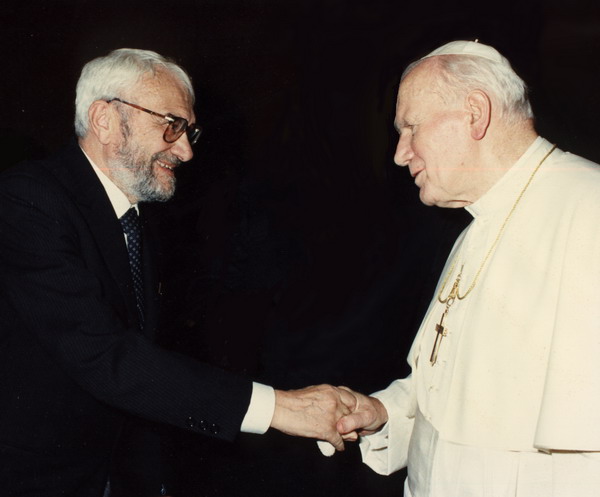In this new book, Dean Hamer discusses possible genetic components of “a personality trait known as self-transcendence, originally identified by Washington University psychiatrist Robert Cloninger. Cloninger found that spiritual people tend to share a set of characteristics, such as feeling connected to the world and a willingness to accept things that cannot be objectively demonstrated. … Hamer confirmed what earlier studies had found: heredity is partly responsible for whether a person is self-transcendent or not.” (quoted from a review on Amazon)
The book has been attacked on various grounds; I won’t bother to attack or defend since I have not yet read it. But the theory that religious feeling (or spirituality) may be genetically determined would explain something that otherwise puzzles me greatly: why do many intelligent people believe in god?
A number of religious people have been part of my life, including some who, while not following any organized religion, believe in or crave some sort of “spirituality.” I try – I really do! – to be respectful of their beliefs, because I respect these folks personally for other reasons.
But, frankly, I just don’t get it. I don’t feel a need for god or spirituality. I can feel connected to the world, and delight in its many wonders, without needing to thank anybody. I have my own strong moral compass that tells me how to treat people and the world, without reference to any scripture. I have no belief in a spiritual world I can’t see, and don’t feel the lack of that belief. Some people are born color-blind; I guess I was born god-blind.
Religions have an explanation for people like me: we haven’t been exposed to, or have refused to accept, the word of god – we haven’t seen the light (as I said: god-blind).
Until now, I’ve been groping for a way to explain them. “Opiate of the masses” only covers the ignorant and easily-led, and assumes complete bad faith on the part of every spiritual leader who ever lived. I can’t go that far. So I’ve had to assume that people whom I know to be intelligent in every other way are just dumb in this particular area, or victims of a traditional upbringing. Which, of course, is no explanation.
I therefore like the idea that the need for religion may have a genetic component. This would explain why some people feel this need strongly, and others not at all. The desire for this feeling of self-transcendence is independent of any specific religion, and even of the question as to whether there is a god. There may or may not be something “beyond” what science will ever be able to explain; for genetic reasons, some of us care a lot about being in touch with whatever it may be, and others don’t. In either case, we can’t help it – we were born that way.




